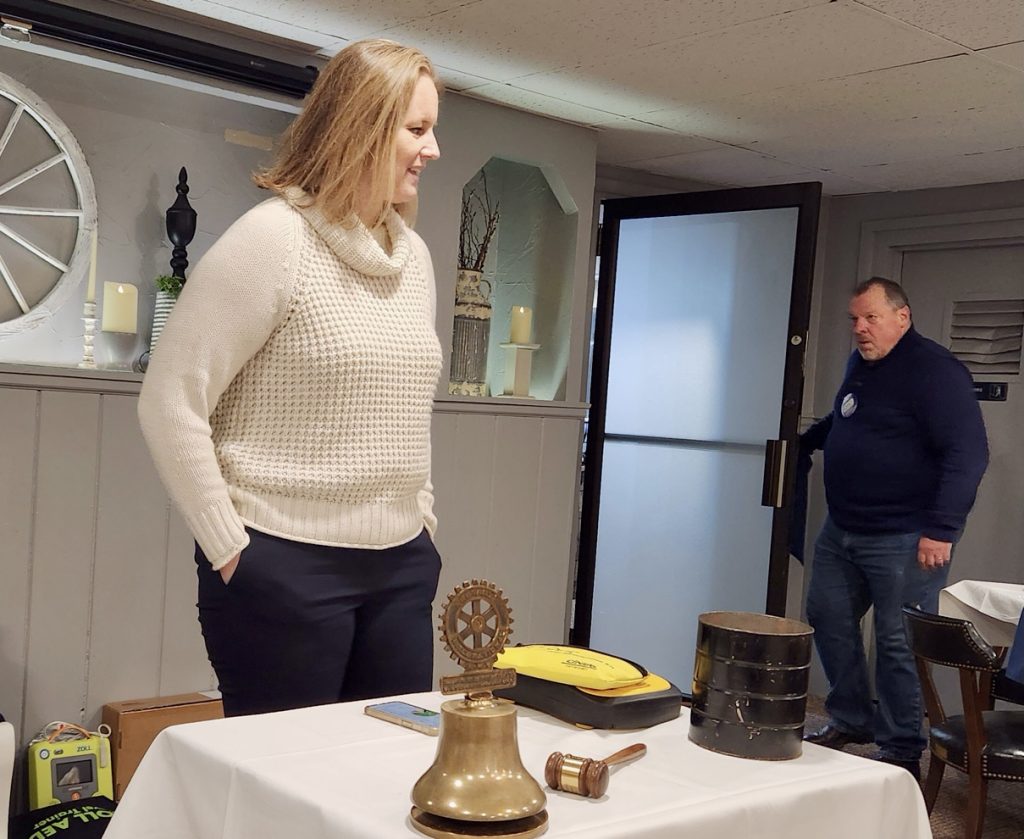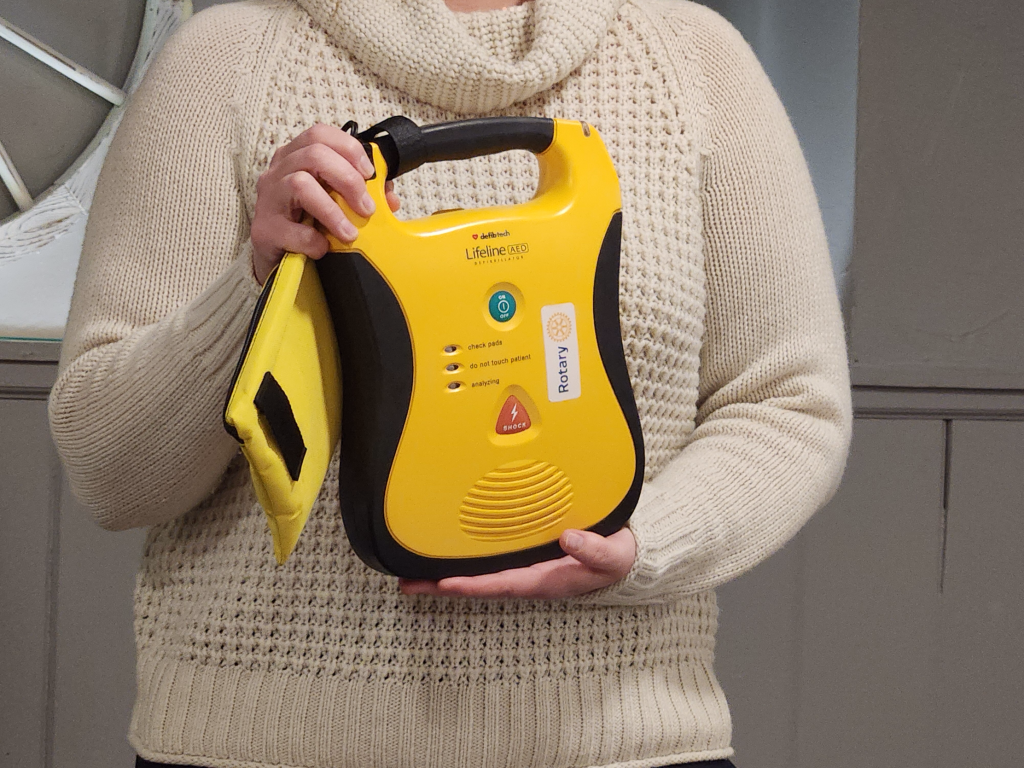Clinton County now has 40 new AED (Automated External Defibrillator) devices installed (or soon to be installed) for use when there is a sudden cardiac arrest episode at the location. The AED project was spearheaded by the Frankfort Rotary Club led by Club President Lynn Beck.
Beck is alive today because such a device was used on him while on a parked jet aircraft. The aircraft had an AED device on board. It is all but certain Beck would not be President of Frankfort Rotary today if the aircraft was not equipped with this device. Beck is still friends with the flight attendant who used the device to save his life. Beck said “I am so thankful all of us did this. It (An AED) changed my life. Life is so precious. We take it for granted. We can be worried about things but really it is no big deal. It is life that matters. Relationships matter. (Frankfort Rotary) is a special group and I am glad to be a part of it.”

Through the efforts of Beck, Frankfort Rotary, Clinton County Community Foundation and I.U. Health the AED devices have been or will soon be installed in the following places:
- Several Police Squad Cars distributed by shifts
- Fire stations
- Several Churches in Clinton County
- Camp Cullom
- Arborwood
- All schools
- Beck said other locations are being considered. Contact Frankfort Rotary if you have ideas for placement. Large congregations of people particularly in isolated areas are ideal candidates for any other unassigned devices.
Sudden Cardiac Arrests happen 350,000 times outside hospitals each year in the United States. A sudden cardiac arrest is NOT a heart attack. Here is the difference:
- A Sudden Cardiac Arrest is an “electrical problem” in the heart. It is a sudden unexpected loss of heart function, breathing and consciousness. This can happen to people of all ages in all states of health. A sudden cardiac arrest can happen to young athletes often during maximal vigorous cardiac performance. It is not necessarily correlated with age. If not treated immediately (within 4-6 minutes) it is usually fatal. Symptoms include sudden heart stoppage with no pulse, no breathing and loss of consciousness. An AED device if possible with CPR is required immediately.
- A Heart Attack is a “plumbing problem” related to the heart. During a heart attack, blood flow to the heart is blocked. Symptoms might include radiating pain, shortness of breath, faint and sweaty feeling. A heart attack may not be as sudden as a “Sudden Cardiac Arrest”. Heart attack, like sudden cardiac arrest, is a very serious condition and must be treated immediately. Call 911, take aspirin if recommended, take nitroglycerin if prescribed and deliver CPR if the person does not have a pulse or is not breathing.
40 locations in Clinton County have or will soon have its own new AED device ready to spring into action. Each AED device has two buttons. A Green or power button starts the device and begins to give automated spoken instructions, such as “secure the area” “tap patient to get a response” “check breathing” etc. etc. The machine will guide the operator through the entire process including audio commands to remove clothing to expose the chest and how to connect the 2 leads with wires attached to the device, triggered by pressing the red button upon verbal command from the device speaker.
Devices need to be maintained by observing expiration dates for battery and electrode pads and observing the colored status light on the device.
Each AED costs $1500 to $2,000. If groups, organizations or businesses have an interest in installing an AED device at their location and want to purchase a unit, Rotary was assisted by Susan Hubbard at Cintas reachable at 317-264-5103.

